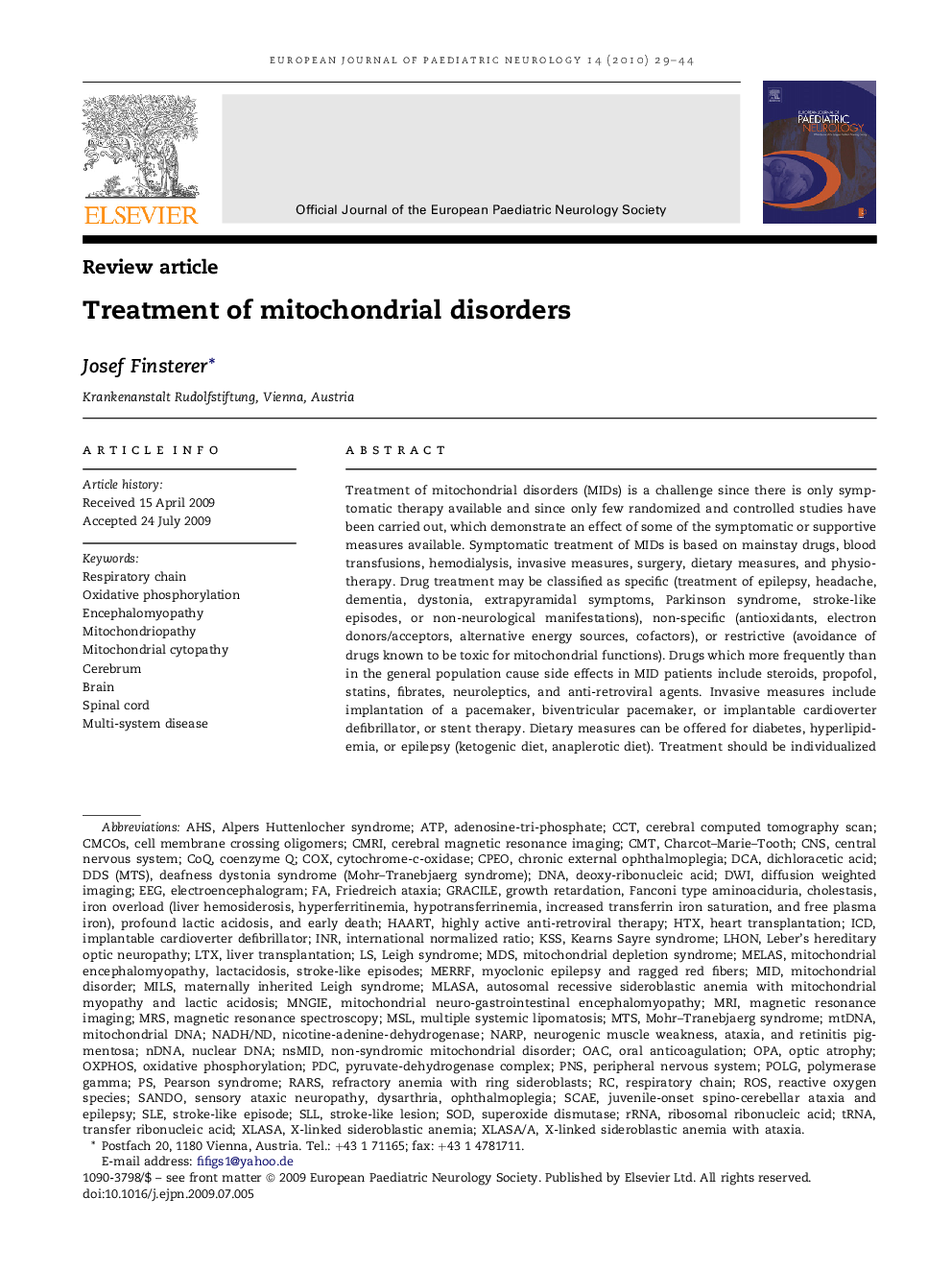| Article ID | Journal | Published Year | Pages | File Type |
|---|---|---|---|---|
| 3054316 | European Journal of Paediatric Neurology | 2010 | 16 Pages |
Treatment of mitochondrial disorders (MIDs) is a challenge since there is only symptomatic therapy available and since only few randomized and controlled studies have been carried out, which demonstrate an effect of some of the symptomatic or supportive measures available. Symptomatic treatment of MIDs is based on mainstay drugs, blood transfusions, hemodialysis, invasive measures, surgery, dietary measures, and physiotherapy. Drug treatment may be classified as specific (treatment of epilepsy, headache, dementia, dystonia, extrapyramidal symptoms, Parkinson syndrome, stroke-like episodes, or non-neurological manifestations), non-specific (antioxidants, electron donors/acceptors, alternative energy sources, cofactors), or restrictive (avoidance of drugs known to be toxic for mitochondrial functions). Drugs which more frequently than in the general population cause side effects in MID patients include steroids, propofol, statins, fibrates, neuroleptics, and anti-retroviral agents. Invasive measures include implantation of a pacemaker, biventricular pacemaker, or implantable cardioverter defibrillator, or stent therapy. Dietary measures can be offered for diabetes, hyperlipidemia, or epilepsy (ketogenic diet, anaplerotic diet). Treatment should be individualized because of the peculiarities of mitochondrial genetics. Despite limited possibilities, symptomatic treatment should be offered to MID patients, since it can have a significant impact on the course and outcome.
